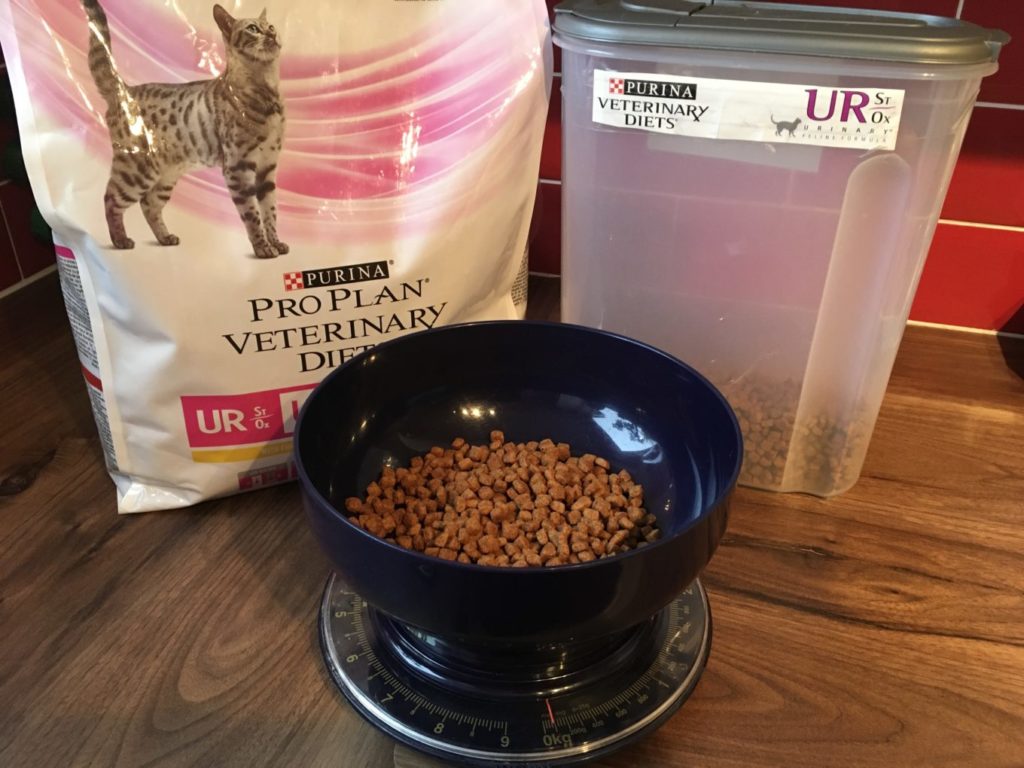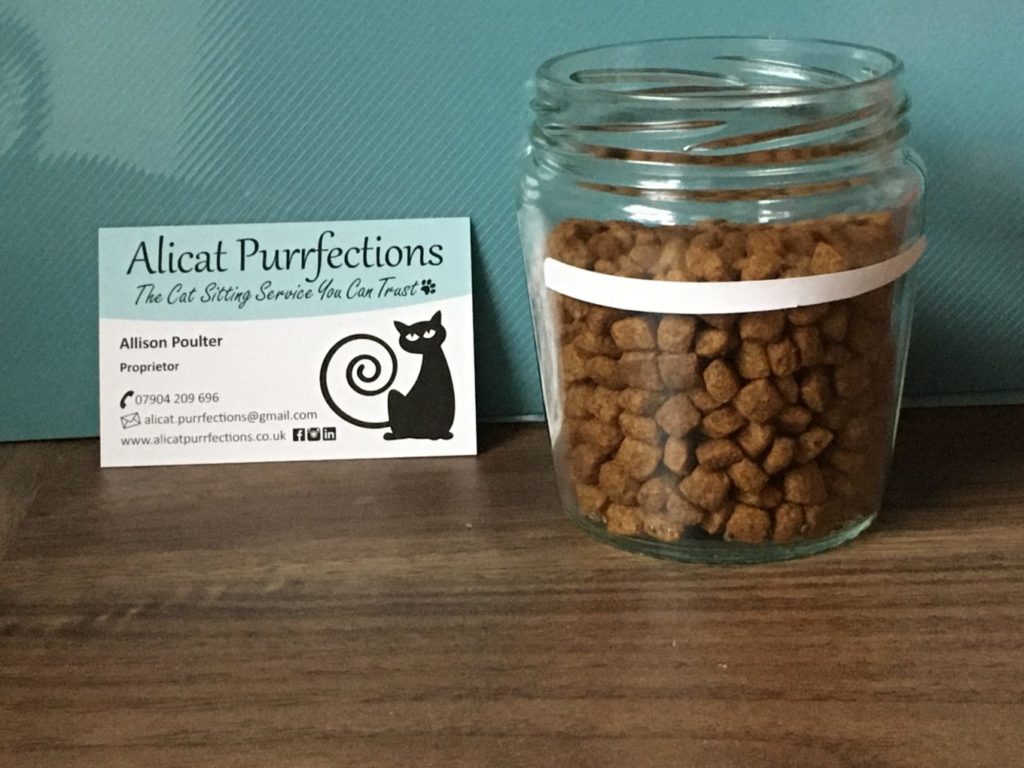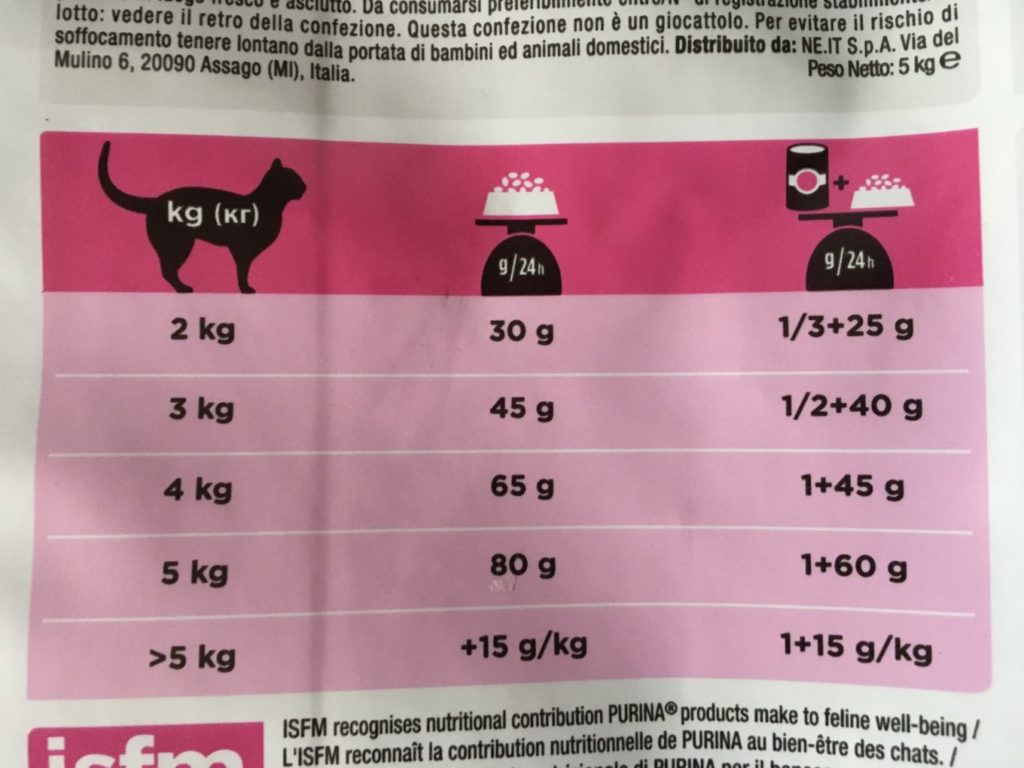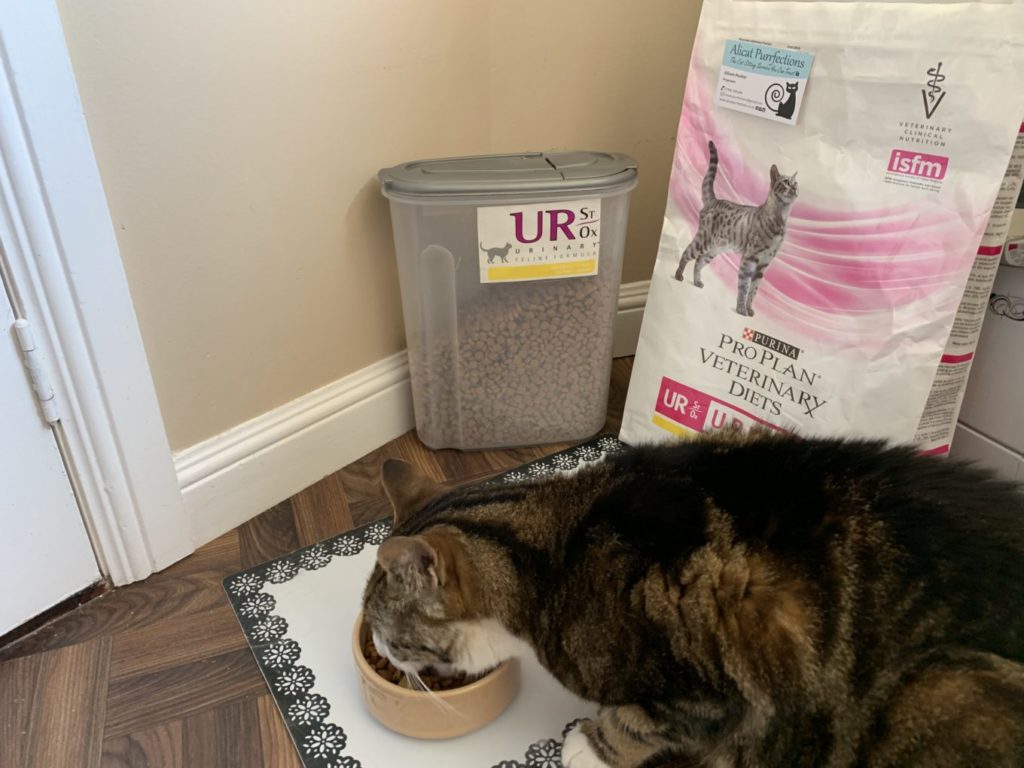As a cat sitter in West Lothian I see lots of different dietary requirements and varying amounts to be offered at feeding times plus available throughout the day. With so much choice on the market, it is really difficult to know what is best to feed your cat. It also doesn’t help how finicity eaters they can be! Loving food one day and ignoring it the next, or refusing to eat a new food. Some veterinarians recommend that you switch foods a couple times a year to keep your cats healthy, although this can be tricky if they don’t like the new food on offer.
Good nutrition is essential to your cat’s overall health. The best diet for your cat is one that replicates what she/he would eat in the wild – a moisture-rich, meat-filled diet. Cats are obligate (true) carnivores, and therefore more quality-source protein in their diets than most other animals.
Cats usually rely on their diet for moisture and don’t drink as much water as they might need. Wet foods have significantly more moisture than dry or ‘semi-moist’ foods. Canned or pouches of food are also lower in carbohydrates and can be especially beneficial for cats with urinary issues, diabetes, and other illnesses, as well as in the prevention and treatment of feline obesity.

A good mix of flavours always helps as well as a variety of textures such as soups, meats in gravy or jelly. If you are unsure about the quality of your cat food, check the first ingredient. If the first ingredient is a meat or fish, it’s most likely a good brand. If the first ingredient is not meat or fish, but is corn, rice, soy or grain derivatives such as gluten or meal, I wouldn’t recommend it.
Most cats are happy with a mix of wet and dry food; however to avoid over feeding, it is a good idea to weigh out the recommended daily amount of biscuits. This may seem not a lot, but it is important to maintain a healthy body weight for your cat. Some will graze throughout the day; others will eat every last morsel you put down for them, which could lead to over feeding. There is information on approximate daily portions noted on the dry food packaging. An average sized, healthy cat weighs around 5kg and is recommended to eat 80/90g of dry food only or 1 pouch of wet food plus 60g of dry per day. I have found marking a container with the amount helps for quickness at feeding times and avoids putting down more than required. These can be put down in one go to be grazed on over the day or half in the morning and half at night. Whichever suits your cats eating habits.

It is very difficult to get the balance right, especially when we know how good our kitty cats are at telling us they are starving and not eaten for hours. They will happily let you feed them all day long! It is also challenging when you have a multi-cat household and they have different dietary requirements, to ensure the right cat gets the right balance and enough food. Some cats will ‘block’ others from getting at the food, so watching for weight loss is also important.

Having regular check-ups at the Vets will keep an eye on their weight and your Vet will advise if they are a healthy weight for the size of cat. If your cat is under, then there could be a medical reason such as Thyroid problems, they are not eating due to dental issues or could be getting blocked by their fellow feline friends and not eating enough. The Vet will obviously check for medical reasons, however if there is no medical explanation for their weight loss; you may need to observe your cats at feeding times. If the cat is not getting access to the food due to the other cats eating it all or just not letting him/her access the bowls, then you may need to feed in a separate room to ensure they are getting a chance to eat.
You may think you are being kind by offering lots of food to your cat and having a permanent supply of food available, however please be aware that this might be causing your cat to put on weight and could lead to obesity. An overweight cat is more vulnerable to many chronic and lifespan-shortening health problems, such as diabetes and arthritis. Also, fat cats often are unable to groom themselves, so their coats become dull and oily and they develop dandruff and mats. In addition, cats who cannot groom themselves may become clinically depressed. Often fat cats cannot reach their own hindquarters, which means that faecal matter and urine can build up and cause discomfort and infection, even if you clean your cat on a regular basis. Although fat cats may be perceived as cute, you are doing your cat a disservice by allowing them to gain too much weight. You can control your cat’s weight by going to your Veterinarian and working out a diet plan that will ensure very gradual weight loss. Never put your cat on a crash diet; it is very dangerous for a cat to lose weight too fast and doing so could lead to life-threatening liver issues. A safe way of promoting weight loss is to encourage your cat to become more active through play. Once your cat has become a slimmer, more active cat, you can be sure their overall health and therefore, quality and length of life has improved.
https://alicatpurrfections.co.uk/alicat/the-importance-of-cat-play/
A balanced diet will keep your cat’s teeth and bones healthy, toned muscles, shiny coat and healthy skin and a healthy urinary tract supported by the right balance of minerals. It is also important to ensure your cat drinks plenty of water, especially if they are on dry food only. Cats in the wild would not eat and drink in the same place, so it is always a good idea to offer several bowls of water around the house. Your cat will chose which one they want to drink from, but keep moving it until you find the place they like. Which in my experience; is usually away from their food in another room. If they are over drinking, please seek medical advice as this could be a sign of diabetes.
https://alicatpurrfections.co.uk/alicat/thirsty-work-being-a-cat/
In May 2015 my cat, Charlie was very unwell and had to have an operation to clear his urinary tract due to it being blocked by crystals in his bladder. It was a worrying time and the poor guy was not happy at being kept in overnight at the Vets. Charlie will only eat dry food, despite my best efforts at offering all sorts of different fresh meat/fish or wet food. He just turns his little pink nose up at it all! Charlie likes his water and I have found his favourite watering spot in the hall, so I know he is well hydrated as he doesn’t get moisture from his food. The Vet recommended I order Purina’s Veterinary Diets UR Urinary Feline formula, which he happily eats. This has avoided him getting further crystals in his bladder, as other biscuits due to their ingredients can cause crystals to form. It is meowvelous when you find the food they like and it keeps your furbulous feline explorer healthy and happy.


